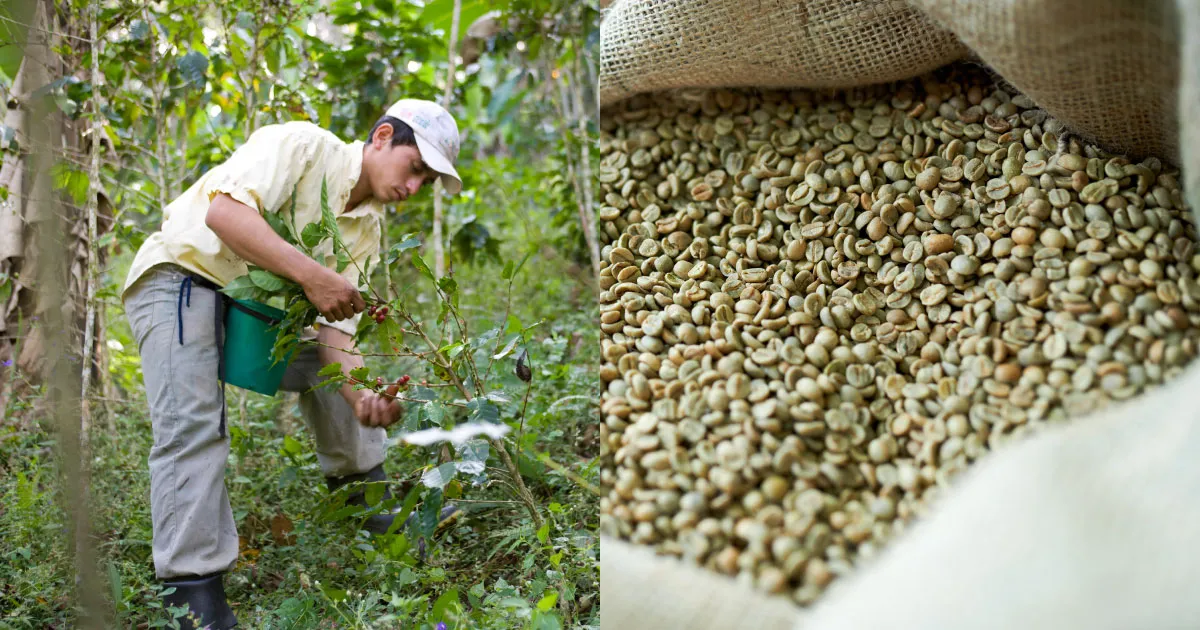Ecuador
All Categories
-
Coffee Farming & Origins
- Africa
- Asia
- Oceania
- America
- Coffee Brands & Products
- Machinery & Equipment
- Accessories & Supplies
Ecuador
Ecuadorian coffee is known for its high-quality Arabica beans, primarily grown in regions like Pichincha, Azuay, El Oro, and Carchi. The coffee features bright acidity, medium body, and diverse flavor profiles, including fruity, floral, and chocolatey notes. Grown at high altitudes (1,200 to 2,000 meters), the beans benefit from unique growing conditions. The industry is increasingly focused on sustainability, with many farmers adopting organic and fair trade practices. Ecuadorian coffee holds cultural significance and is gaining recognition in the specialty coffee market, despite facing challenges such as climate change and economic instability. Overall, it offers a rich and diverse experience for coffee lovers.
Ecuador
Unveiling the Secrets of Ecuadorian Coffee
Ecuador
A Rich Heritage of Flavor and Sustainability
Ecuador is gaining recognition in the global coffee market for its diverse and high-quality coffee offerings. The country produces primarily Arabica beans, which thrive in its varied microclimates, ranging from coastal regions to the Andes mountains. Ecuadorian coffee is known for its unique flavor profiles, influenced by the country's rich volcanic soil and ideal growing conditions.
Flavor Profile
Ecuadorian coffee is celebrated for its complexity and vibrant flavors. Common tasting notes include:
This diverse flavor spectrum makes Ecuadorian coffee appealing to a wide range of coffee enthusiasts.
Ecuador is gaining recognition in the global coffee market for its diverse and high-quality coffee offerings. The country produces primarily Arabica beans, which thrive in its varied microclimates, ranging from coastal regions to the Andes mountains. Ecuadorian coffee is known for its unique flavor profiles, influenced by the country's rich volcanic soil and ideal growing conditions
Eco-Friendly Practices
Ecuador is committed to sustainable coffee farming practices that prioritize environmental conservation and social responsibility:
• Shade-Grown Coffee: Many farmers grow coffee under a canopy of trees, promoting biodiversity and protecting natural habitats.
• Organic Farming: A significant portion of Ecuadorian coffee is grown organically, reducing the use of chemical fertilizers and pesticides.
• Water Conservation: Farmers are increasingly adopting methods to conserve water during processing, ensuring minimal environmental impact.
These eco-friendly practices not only enhance the quality of the coffee but also contribute positively to local ecosystems.
Coffee Tours and Tastings
Ecuador offers a variety of coffee tours and tastings that allow visitors to immerse themselves in the local coffee culture:
• Farm Visits: Tourists can visit coffee farms in regions like Loja and Pichincha to learn about the cultivation process, from planting to harvesting.
• Cupping Sessions: Engage in cupping sessions where visitors can taste and compare different varieties of Ecuadorian coffee.
• Cultural Experiences: Interact with local farmers and communities to understand the cultural significance of coffee in Ecuadorian society.
These experiences provide a deeper appreciation for the craftsmanship behind each cup of Ecuadorian coffee.
Pairing and Sipping
Ecuadorian coffee pairs well with various foods due to its rich and diverse flavor profile. Here are some pairing suggestions:
• Breakfast Foods: Enjoy it with traditional Ecuadorian breakfast items such as empanadas or fresh fruit.
• Desserts: The chocolatey notes complement desserts like chocolate cake or flan.
• Savory Dishes: Pair it with grilled meats, ceviche, or hearty stews for a delightful contrast.
The versatility of Ecuadorian coffee makes it an excellent companion for various culinary experiences.
Growing Regions
Ecuador's diverse geography contributes to the unique characteristics of its coffee. Key growing regions include:
• Loja: Known for its high-quality Arabica beans with fruity and floral notes.
• Pichincha: Produces coffees with bright acidity and chocolate undertones.
• Azuay: Famous for its smooth and balanced coffees, often with nutty flavors.
• El Oro: This coastal region is known for producing sweet and fruity coffees.
Each region offers distinct flavors influenced by altitude, climate, and soil composition.
Traditional Practices
Many coffee farmers in Ecuador continue to employ traditional practices that reflect their cultural heritage:
• Hand-Picking: Ripe cherries are selectively hand-picked to ensure only the highest quality fruit is harvested.
• Wet Processing: The traditional wet processing method is commonly used, where cherries are washed and fermented before being dried. This method enhances the clarity and brightness of the coffee.
These traditional methods demonstrate a deep respect for the land and a commitment to producing top-quality coffee.
Global Recognition
Ecuadorian coffee has gained international recognition for its quality and unique flavor profiles. The country's commitment to sustainability, organic farming, and Fair Trade practices has attracted attention from specialty roasters and coffee enthusiasts worldwide. Ecuadorian coffees have participated in international competitions, showcasing their unique characteristics and earning accolades.
Conclusion
Ecuador coffee stands out for its rich flavors, commitment to sustainability, and cultural significance. With diverse profiles influenced by unique growing conditions and traditional practices, it offers an inviting experience for coffee lovers. Whether you’re savoring a cup at home or exploring its origins through tours and tastings, Ecuadorian coffee invites you to appreciate the artistry behind each brew.
0 Products found
You have 4 new notification
Category
-
Coffee Farming & Origins
- Africa
- Asia
- Oceania
- America
- Coffee Brands & Products
- Machinery & Equipment
- Accessories & Supplies
Notification

